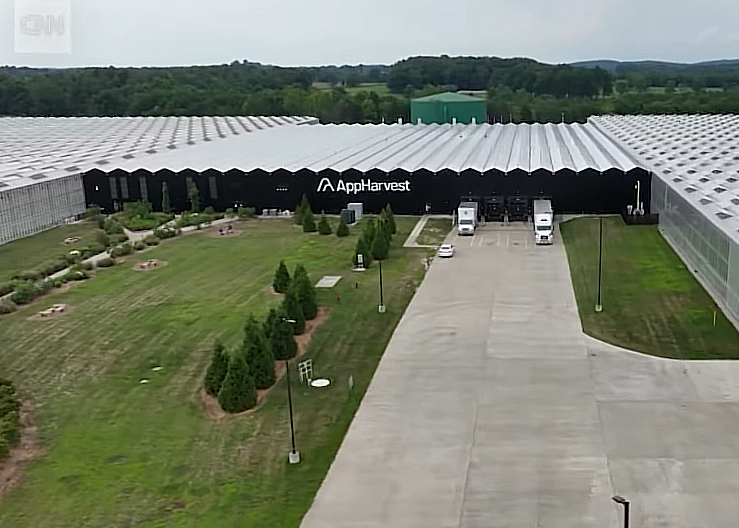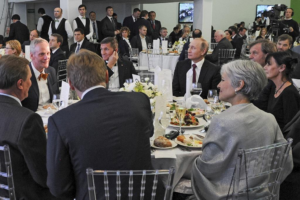
AppHarvest burst onto the scene with grand promises of revolutionising agriculture in Appalachia. Founded by Jonathan Webb, this American food production company was supposed to be the beacon of hope for the region. Using cutting-edge indoor farming techniques, AppHarvest aimed to reduce carbon emissions while delivering fresh produce to the Midwest and East Coast. With its Morehead, Kentucky, facility spanning 60 acres, the company had big plans for expanding across the state.
But what made AppHarvest truly stand out wasn’t just its innovative farming methods. The company attracted high-profile board members like Martha Stewart, activist investor Jeffrey Ubben, and former Impossible Foods CFO David Lee. However, one name that really caught everyone’s attention was JD Vance, the venture capitalist turned politician, who authored Hillbilly Elegy and later became a U.S. senator from Ohio. Oh, and did I mention he’s also the 2024 vice presidential nominee? Quite the resume, right?
A Bright Future, Derailed
When AppHarvest went public in 2020, the buzz was real. The company merged with Novus Capital Corp, a special-purpose acquisition company (SPAC), and the future seemed bright. But things took a dramatic turn. Within a few years, the company’s stock plummeted, losing over ninety-five percent of its value. Ouch! That’s a steep drop by any standards.
In July 2023, the company filed for Chapter 11 bankruptcy. A once-promising venture had now become a cautionary tale. The greenhouses, which were supposed to be the backbone of AppHarvest’s success, were sold off to various buyers. Morehead and Richmond facilities went to Equilibrium Capital, Somerset to Bosch Growers, and Berea to Mastronardi. The dream was shattered, and so were the hopes of many who believed in it.
Behind the Scenes: Unsafe Work Conditions and Broken Promises
As if the financial collapse wasn’t bad enough, the working conditions inside AppHarvest’s greenhouses have come under fire. Investigative reports revealed a nightmarish scenario where workers faced extreme heat, sometimes up to 155 degrees Fahrenheit. Can you even imagine? Health issues were rampant, and despite multiple safety complaints, nothing was adequately addressed. Local workers were outnumbered by contract workers from Mexico and Guatemala, a stark contrast to the company’s original pledge to support the local economy.
The backlash didn’t stop there. By November 2022, five federal lawsuits had been filed by shareholders. The claims? Fraud, mismanagement, and a significant decline in stock value. Shareholders alleged that AppHarvest’s executives misrepresented the company’s readiness for its launch, all while top executives received substantial compensation. Talk about adding insult to injury!
JD Vance: The Man in the Middle
So, where does JD Vance fit into all this? Well, he was one of the early investors and a vocal supporter of AppHarvest. He even tweeted about how much he loved the company and believed in its mission. But as the company’s fortunes took a nosedive, Vance’s involvement started to draw criticism. After all, he was part of the original board, and many wonder how much he knew about the looming disaster.
Vance left the board in April 2021 to focus on his Senate run. But the timing raises eyebrows, especially since the shareholder lawsuits came shortly after. Did he see the writing on the wall and decide to jump ship? Some critics certainly think so.
The Aftermath: Where Do We Go from Here?
As AppHarvest’s story unfolds, it’s clear that this is more than just a business failure. It’s a cautionary tale about the promises made to struggling communities and the harsh realities that often follow. For the workers in Appalachia, who bought into the dream of a brighter future, the disappointment is palpable.
And as for JD Vance, his involvement with AppHarvest is a chapter that will undoubtedly follow him as he navigates his political career. Whether it’s fair or not, the questions surrounding his role in the company’s rise and fall aren’t going away anytime soon.
AppHarvest was supposed to be a beacon of hope for Appalachia. Instead, it has become a symbol of broken promises and missed opportunities. For JD Vance, it’s a reminder that no matter how far you go, your past will always be part of your story. And for the people of Appalachia, it’s another chapter in a long history of being let down by those who claim to have their best interests at heart.





